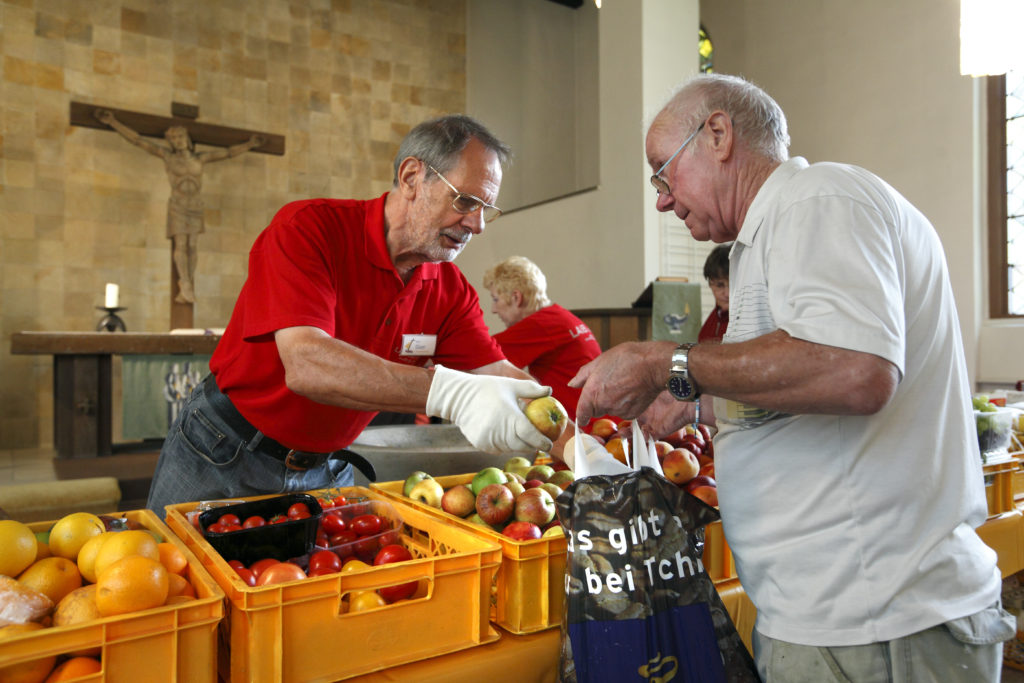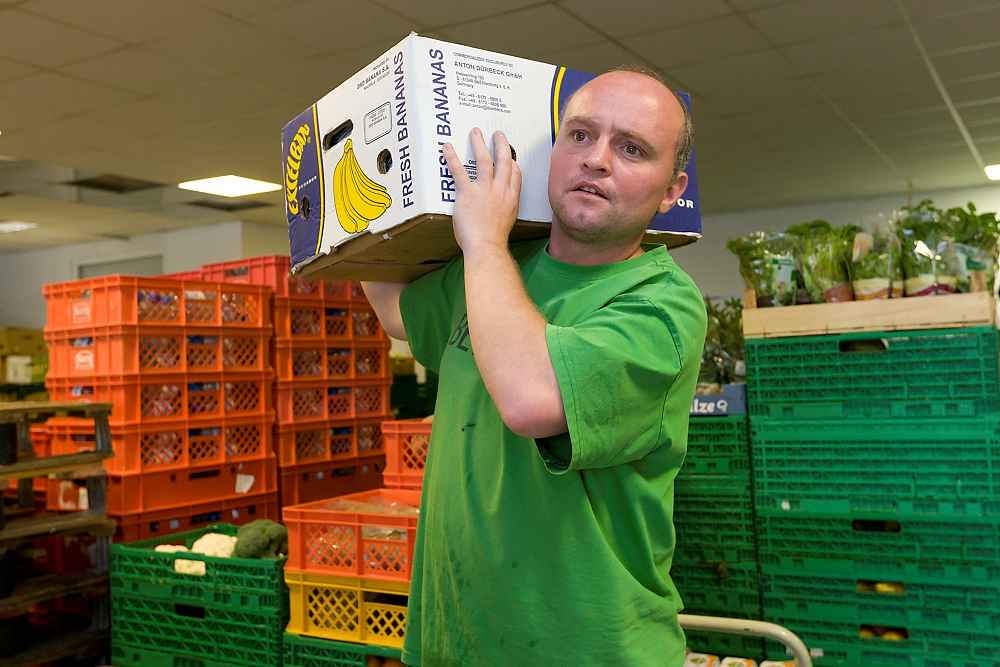Since we’ve been throwing it in your faces for the last few weeks, I’m sure you all already know by now that on a worldwide scale, we waste one third of all the food that we produce. Food is such an important part of our lives – to the point that we we would literally die without it – yet we clearly don’t respect its true value based on the statistics alone; as a species, we are so disconnected from the whole process of how our food is produced. This leads to a multitude of problems, and not only from an economic or sustainability perspective.
In Germany in 2015, 15.7% of people were considered to be living in poverty. We live in a world in which we waste so much food, yet at the same time, there are people who can’t even afford it. To Timo Schmitt – the hygiene officer of the Berliner Tafel – this is the most scandalous thing which is happening in the 21st century. Timo was one of the speakers of our event on Thursday December 6th, and in order to get to know him a little better, I decided to leave the ring – queue the gasps – and visit the Berliner Tafel.
Berliner Tafel
Before we get to Timo, I’d first like to tell you a little bit about the Berliner Tafel, to make sure we’re all on the same page. The general concept is that a group of volunteers will go around the city and collect food from supermarkets which would otherwise be thrown away. Unlike Too Good To Go which focuses on freshly prepared food, the Berliner Tafel focuses more on saving the raw ingredients, with the idea that people would then make their own dishes. Having originated in Berlin 25 years ago, the concept of the Tafel has developed, with 937 now being spread over the whole of Germany.
The needy
While being sustainable is an important part of his work, for Timo it’s just a happy consequence of his true passion: helping the needy. Having worked at the Tafel for 8 years now, he told me that it’s his responsibility to deal with a lot of the administration work, but the thing that he enjoys most is being on the frontline. In particular, the part of his life’s work which gives him the most joy, is seeing the reaction on the peoples faces of whom he is helping.

Even though the sentiment behind his work is nice, the reason that he has to do it in the first place is shocking. In reference to the earlier statistic of 15.7%, he informed me that in Berlin, around 20% of children are living on the poverty line. Not only this but he highlighted a common problem in reference to the needy: in winter, people are a lot more active in their support due to the cold weather. He also said that while it is true that they need more support during the colder months, they still need assistance for the rest of the year. Through his work he tries to keep neediness in the spotlight the whole year round.
Background
Perhaps one of the biggest reasons he was so drawn to food waste is that he himself grew up around agriculture and food production, though as a child his awareness was of course not at the level it is today. He told me that the point at which he realised there was a huge issue was during his food science degree, where he had the chance to pick between a few different homework assignments and he settled on one about food waste. After this he began working for a Tafel in Münster on a voluntary basis, which further opened his eyes to the sheer scale of the problem of food waste. After we’d finished talking, he showed me around the storage facility and it was truly eye opening to see how much perfectly good food would otherwise be going to waste.

A complicated issue
Given the progress the Tafel has made in the last 25 years, it’s no doubt that the movement will continue to grow and fight against food waste in Germany, though there are still some obstacles in the way. One example he gave me was that of Lufthansa – a popular German airline – who due to regulations have to throw away all the food that isn’t consumed on a flight, which shows that policy can also be a factor. After our talk and seeing the facility, my walk back to the Ringbahn had my head digesting (pun intended) all of the new information and I came to one conclusion: working in sustainability is my goal now, more than ever.
- Why Do Gases Act As Greenhouse Gases? - November 12, 2019
- 3 Reasons Why Protecting Our Rivers Is Incredibly Important - September 22, 2019
- The 5 Most Abundant Greenhouse Gases and Where They Come From - September 6, 2019
